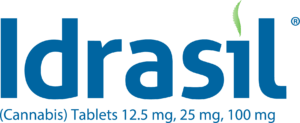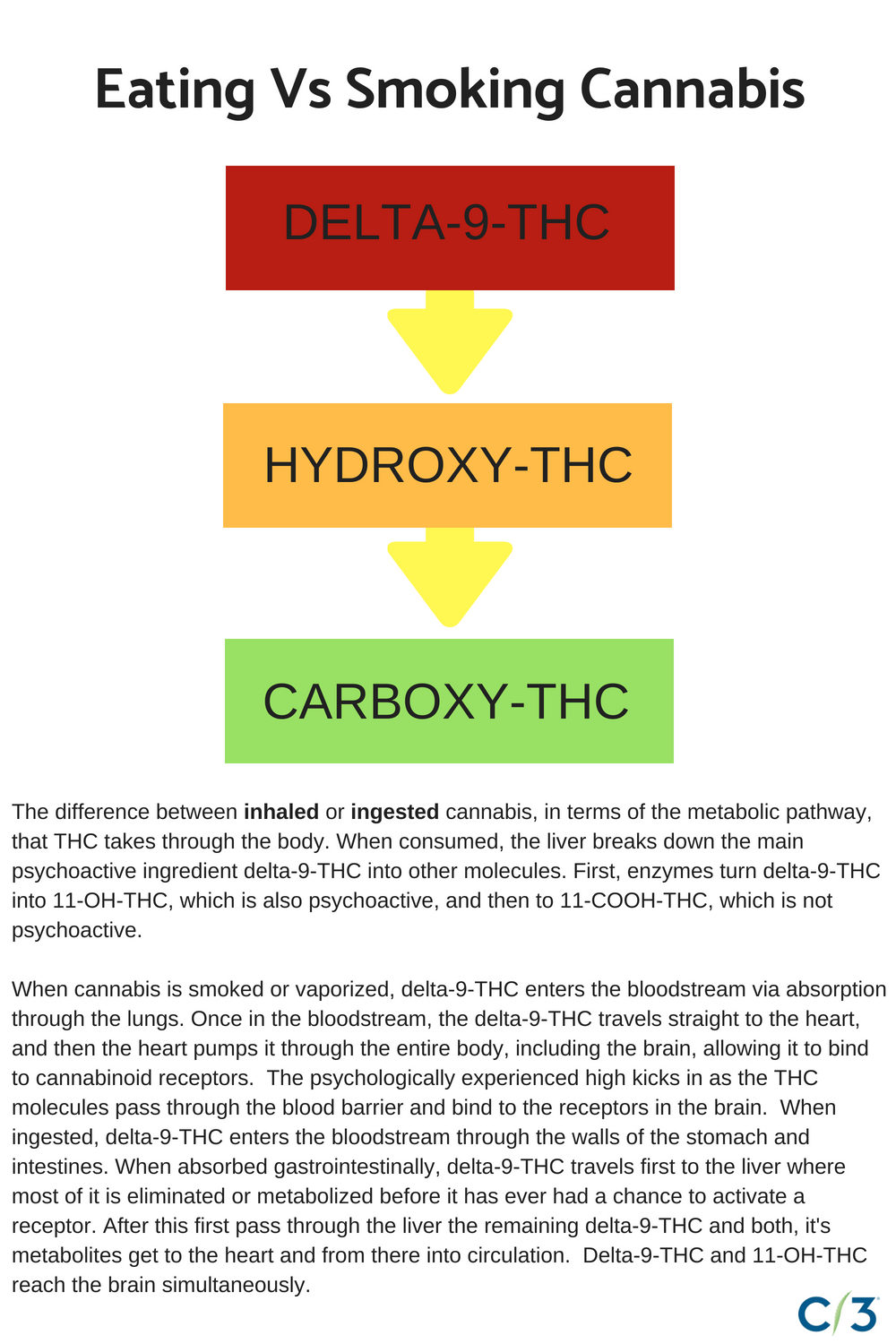
The Endocannabinoid System as an Emerging Target of Pharmacotherapy
The recent identification of cannabinoid receptors and their endogenous lipid ligands has triggered an exponential growth of studies exploring the endocannabinoid system and its regulatory functions in health and disease. Such studies have been greatly facilitated by the introduction of selective cannabinoid receptor antagonists and inhibitors of endocannabinoid metabolism and transport, as well as mice deficient in cannabinoid receptors or the endocannabinoid-degrading enzyme fatty acid amidohydrolase.
In the past decade, the endocannabinoid system has been implicated in a growing number of physiological functions, both in the central and peripheral nervous systems and in peripheral organs. More importantly, modulating the activity of the endocannabinoid system turned out to hold therapeutic promise in a wide range of disparate diseases and pathological conditions, ranging from mood and anxiety disorders, movement disorders such as Parkinson’s and Huntington’s disease, neuropathic pain, multiple sclerosis and spinal cord injury, to cancer, atherosclerosis, myocardial infarction, stroke, hypertension, glaucoma, obesity/metabolic syndrome, and osteoporosis, to name just a few.
An impediment to the development of cannabinoid medications has been the socially unacceptable psychoactive properties of plant-derived or synthetic agonists, mediated by CB1 receptors.
However, this problem does not arise when the therapeutic aim is achieved by treatment with a CB1 receptor antagonist, such as in obesity, and may also be absent when the action of endocannabinoids is enhanced indirectly through blocking their metabolism or transport. The use of selective CB2 receptor agonists, which lack psychoactive properties, could represent another promising avenue for certain conditions.
The abuse potential of plant-derived cannabinoids may also be limited through the use of preparations with controlled composition and the careful selection of dose and route of administration. The growing number of preclinical studies and clinical trials with compounds that modulate the endocannabinoid system will probably result in novel therapeutic approaches in a number of diseases for which current treatments do not fully address the patients’ need. Here, we provide a comprehensive overview on the current state of knowledge of the endocannabinoid system as a target of pharmacotherapy.
- The American Society for Pharmacology and Experimental Therapeutics
Comparing THC and CBD
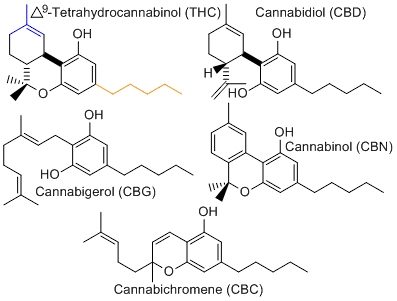
Acid vs. Neutral Cannabinoid
Decarboxylation
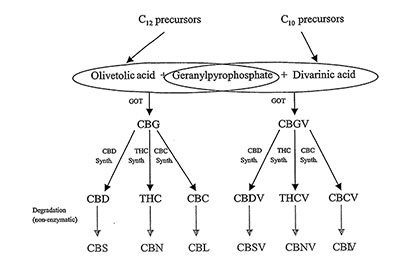
Non-psychoactive Phytocannabinoids
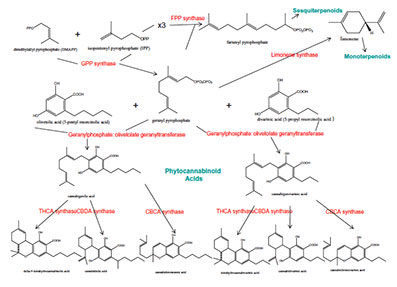
Health Effects of Cannabinoids
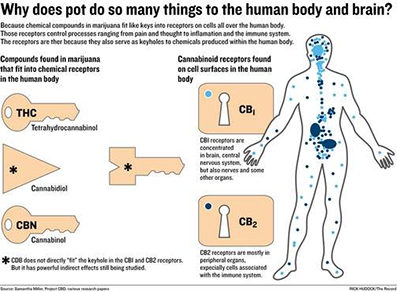
Non-THC Components of Cannabis
- △9-tetrahydrocannabinol (THC) is the primary active ingredient in cannabis
- Secondary compounds may enhance the beneficial effects of THC
- Other cannabinoids and non-cannabinoid compounds may reduce THC-induced anxiety, anticholinergic effects, and immunosuppression
- Terpenoids and flavonoids may increase cerebral blood flow, enhance cortical activity, kill respiratory pathogens and provide anti-inflammatory activity
Cannabidiol (CBD)
- Modulates the pharmacokinetics of THC
- Very low affinity for CB1 And CB2 receptors
- Slight affinity for CB receptors as an antagonist
- May modulate downstream signal transduction
- Potent cytochrome P450 3A11 inhibitor thus blocking the formation of 11-OH metabolite
- CBD possesses sedative properties, reduces anxiety and other unpleasant psychological side effects of pure THC
Idrasil™ is CBD-Rich
- Second to THC as the most prevalent cannabinoid
- Little binding affinity at CB1; mildly antagonizes THC
- Reduces anxiety, paranoia, tachycardia, hunger, sedation
- Analgesic; neuroprotective antioxidant; anticonvulsant, anti-nausea; antagonizes TNF-alpha; anti-MRSA; agonistic at 5HT1a (anti-anxiety)
- Cytotoxic to many cancer cell line- cytopreserative to normal cells
- Improves cognition in animal models of hepatic encephalopathy
